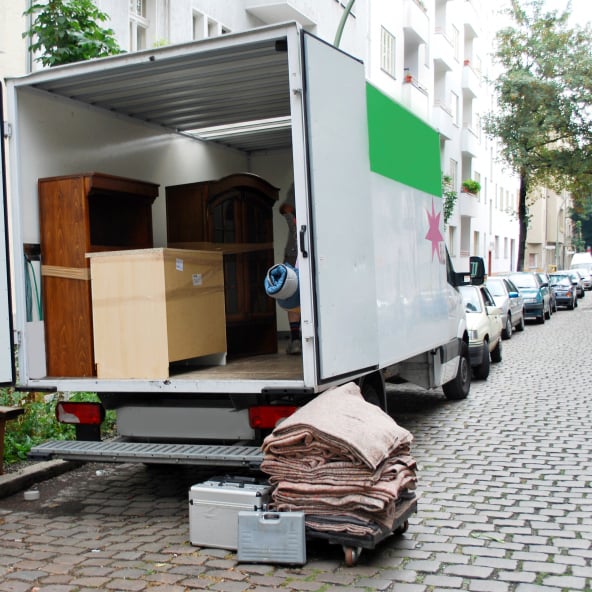Eighty-three percent of people view their home as a good financial investment, a 2014 survey by the National Association of Realtors (NAR) found. Not only is their home the biggest single asset most people own, but it’s also filled with memories — the average seller has lived in his house for a decade, according to the NAR. So it’s no wonder that when it comes time to sell property, people can get a little emotional.
Yet if people actually want to get a return on their investment in their home, they need to be smart about how they approach selling it. Letting emotions, not logic, drive decisions means you’re more likely to make mistakes that can make it difficult to find a buyer or force you into accepting a lower offer than you would like.
The good news for sellers is that the market is tight. That’s pushing home prices higher across the country, and the number of homes being sold is also up. The typical seller receives 97% of his final asking price, and his home was on the market for about a month, says the NAR.
But those numbers don’t mean that every homeowner sells his property quickly or gets the price he wants. You can increase your chances of a successful real estate transaction if you avoid these five mistakes when listing your home.
1. Not being realistic about your home’s value
What you think your home is worth and the price you can actually sell it for are often two very different numbers. “Nobody cares what you paid for it,” one frustrated home seller told the Wall Street Journal. He’d bought a home for $325,000 and spent another $150,000 on renovations, but the property eventually sold for $83,000 less than he originally paid for it.
Even in markets where inventory is tight, sellers need to be careful not to get too greedy when picking a listing price. Properties that are overpriced at the outset tend to eventually sell at a lower price than they would have if they’d been appropriately priced in the first place. Choose a reasonable price based on factors like how much comparable properties are selling for and the home’s appraised value. If you’re not getting any interest, adjust your strategy. “No offers within a 30-day period means the price is too high,” real estate agent Djana Morris wrote in The Washington Post.
2. Not making your home look its best
By now, we’ve all watched enough HGTV shows to know that good staging and curb appeal help to sell homes. “At a minimum, homeowners should conduct a thorough cleaning, haul out clutter, make sure the home is well-lit and fix any major aesthetic issues,” said Chris Polychron, president of the NAR, in a statement about the value of home staging. More elaborate staging, such as repainting with neutral colors, sprucing up landscaping, or purchasing new furniture can also help. Overall, professionally staged homes can sell five to seven times faster than non-staged homes, according to the Real Estate Staging Association.
3. Refusing to negotiate

You should start by setting a fair and reasonable price for your home, but you also need to build in some wiggle room, especially if you need to sell quickly. Many buyers will start with an offer well below your asking price, particularly if they think it’s a buyer’s market. Naturally, their goal is to pay as little as possible for the home they want. Plus, many people want to feel like they’ve snagged a deal on what may be the biggest purchase of their lives.
You can make your buyers happy while also getting the price you need by being willing to accept slightly less than asking price for your home. Alternatively, you might agree to concessions like paying the closing costs, throwing in appliances, or making certain repairs to the property in order to sweeten the deal. Working with an experienced agent can help you negotiate the tricky dance of getting the price you want without scaring off a buyer.
4. Hiding the truth about your home

Sellers who want to be rid of their property quickly may be tempted to try to hide problems with the home from prospective buyers. But trying to cover up serious flaws, like foundation problems, leaky roofs, or mold, could come back to haunt you later. If you aren’t up front about your home’s issues, the buyer may well discover them during the home inspection. At that point, they’ll probably either back out of the deal or ask you to cover the costs of fixing the problem. If the issues are serious and are discovered after the sale goes through, you could end up caught in a messy, protracted legal battle.
Real estate site Zillow recommends being upfront with both your listing agent and your buyer about potential issues with the home. Price your home appropriately given its condition and document the problems you’re aware of and have your buyer sign off on them. Full disclosure is the best way to avoid a lawsuit.
5. Not having a backup plan

In a perfect world, you’re able to smoothly navigate the transition between selling your current home and buying a new one. In reality, things rarely go as planned. Savvy sellers have contingency plans in place to avoid either getting stuck with two mortgages at once or not having a place to live, or to protect them if a deal falls through.
Some people insert clauses into their contracts that make it clear that they won’t move forward with the sale unless they are able to purchase a new home. You may also want to be prepared to find temporary housing, like a rental or staying with family, in case your home sells quickly. If you must move before your home sells, make sure you’ve budgeted to afford the carrying costs of the old home. Finally, if there are multiple people interested in your home, you may be able to accept backup offers, which involve agreeing to sell to a second buyer if the first one backs out.

